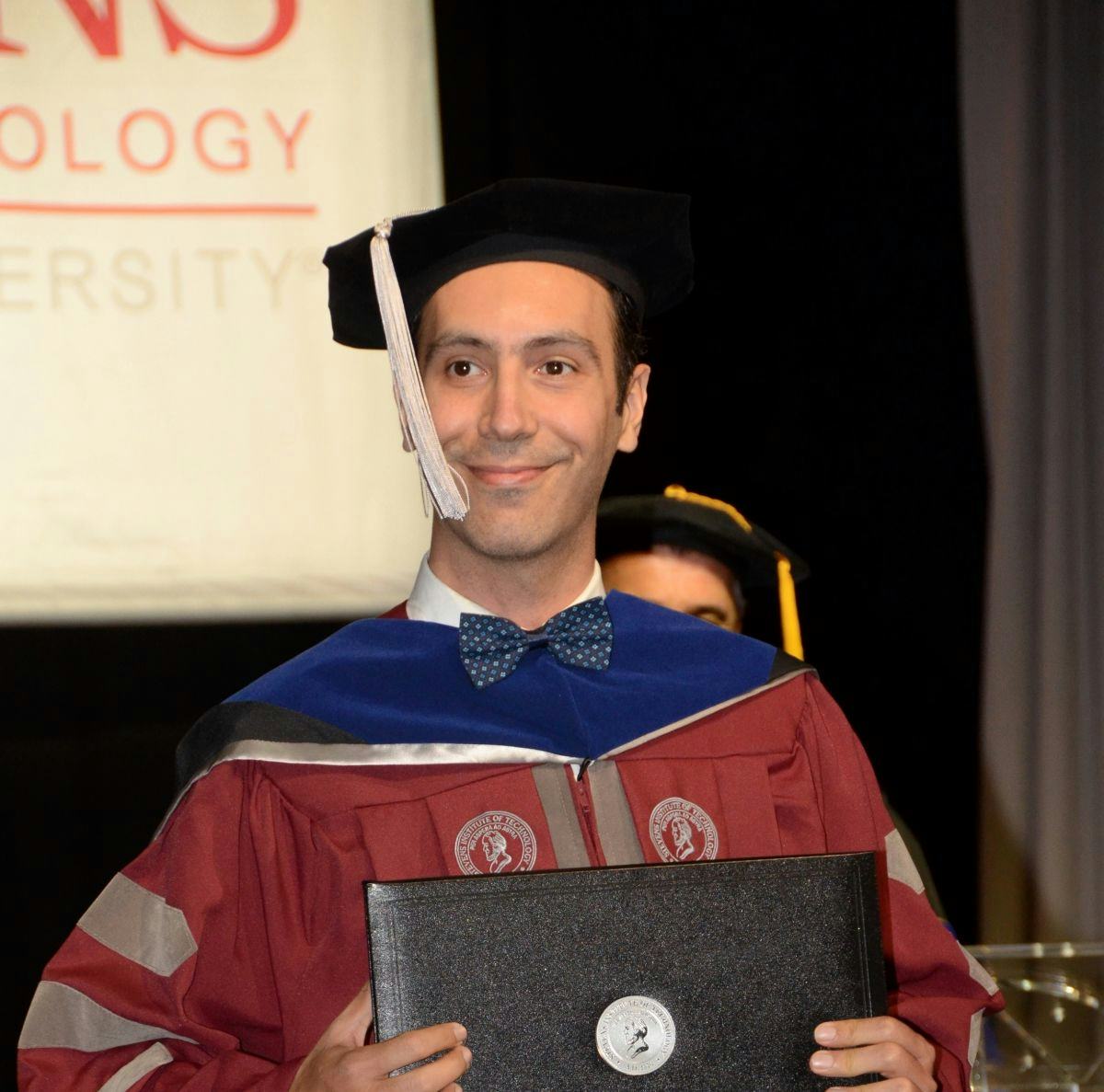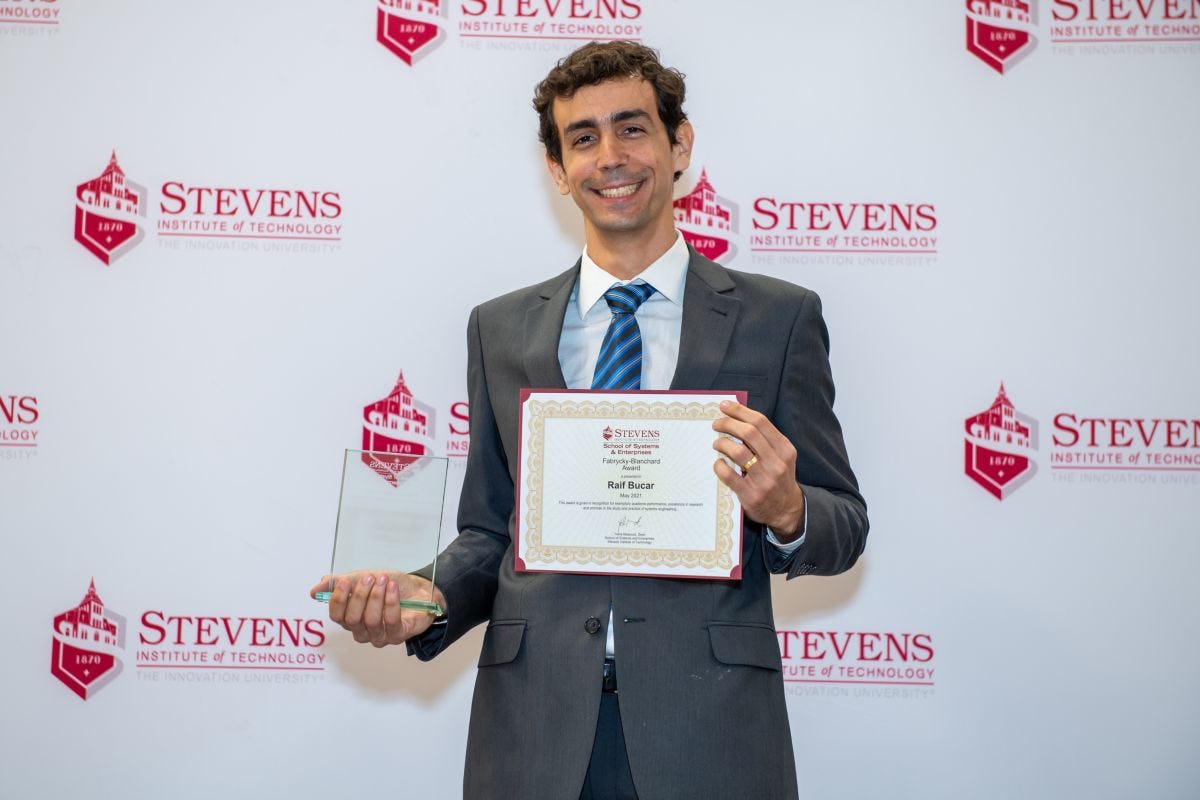Systems Thinking Crosses Industries: SSE Transportation Researchers Earn Careers at Janssen Pharmaceuticals
Following four years of intense quantitative research under the guidance of Professor Yeganeh Hayeri, two students from the School of Systems & Enterprises (SSE) have started careers at Janssen Pharmaceuticals, a division of Johnson & Johnson that conducts research and development related to human medical disorders.
Saeed Vasebi, Ph.D. in Systems Engineering, graduated December 2020 and now works as a data scientist at Janssen. Using real-world data to generate highly customized marketing action plans, Saeed and his team translate scientific facts and figures into business insights for Janssen’s marketing and sales departments.
Raif Bucar, a current student in the Engineering Management doctoral program at SSE was also recently hired as a data scientist at Janssen and will be working within its commercial data science department after graduation.
“Remarkably, my work there will resemble many aspects of my Ph.D. program,” said Bucar. “For example, I will be working to develop and validate artificial intelligence models and deliver cutting-edge data analytics solutions which I learned to do during my time at SSE.”
Skills that Translate Across Industries
Though neither of their degrees were in pharmaceuticals or medicine, Vasebi and Bucar applied the hands-on project experiences of their doctoral studies during the Janssen interview process. The two published SSE researchers spoke with the School and detailed how a systems-based education provides wide-reaching career opportunities.
How do you think your SSE education helped you earn positions at Janssen?
SV: At SSE, I not only learned advanced AI algorithms such as deep reinforcement learning — I learned how to apply this knowledge to conduct scientific research and deliver impactful insights for business and industry. The algorithms I developed in my Stevens research and publications helped me to land my current position at Janssen.
RB: Although my work at Stevens was not in pharmaceuticals, many of the techniques I used were application-agnostic and translatable to many industries.
For example, one of the machine learning tasks we conducted as part of our projects was to classify whether a street will be vulnerable to flooding given local physical conditions such as elevation, slope, tides or precipitation. These same classification models could also determine whether a customer is likely to purchase our product given their demographics, such as age or income. Optimization and data visualization are two critical skills that overlap between my work at Stevens and Janssen.
If not pharmaceuticals, what sectors or fields did you research during your doctoral programs?
SV: With guidance from Professor Hayeri, I worked on transportation systems evaluating the socio-economic impacts of self-driving cars and developing eco-friendly driving algorithms for automated vehicles. Although my research was not related to pharmaceuticals, I was able to transfer my knowledge from transportation to pharma and became an impactful player on the team.
RB: My work alongside Professor Hayeri emphasized data-driven solutions to transportation resilience to flood events, featuring three milestone studies focused on the city of Hoboken.
Professor Hayeri's signature course — EM 655: Sustainable Transportation Systems: Technology, Management and Policy — provided me with an essential jumpstart for my Ph.D. work. I highly suggest it for engineering graduate students as it provided me with an intense multidisciplinary curriculum of student-led projects. It also capitalized on Stevens' multicultural background by offering a unique experience in exploring sustainable transportation solutions worldwide such as bike-share programs in China or the ferry system in Thailand.
So you both conducted research projects with Professor Hayeri that focused on the transportation sector. How did this experience help you land your current roles?
SV: As a Ph.D. student, most of my program was about conducting research projects and finding solutions to real-world problems rather than only passing courses. My last project involved developing an algorithm to make automated vehicles more environmentally friendly. I integrated a machine-learning model with an optimization algorithm, called model predictive control (MPL). My knowledge of MPL and optimization were essential in landing this position and my success in the position.
RB: My research with Professor Hayeri allowed me to practice and demonstrate the valuable skills I needed to get hired. Anyone who reads our publications or watches my presentations will see my data analytics and machine learning abilities. The interview process for my position at Janssen had five phases, all of which I succeeded in by highlighting key skills learned and practiced through my research experiments.
Professor Hayeri also mentored me in the ability to present technical concepts to general audiences, another valuable skill for a data scientist. I will often be engaging with stakeholders outside my technical domain and with whom I must be able to communicate. I firmly believe this skill helped me through the interview process and will be even more helpful in my next career steps at Janssen.
The Impact of Community
Vasebi and Bucar credit the SSE community with playing a crucial role in their development as data scientists. Peer feedback and transferable skills proved essential in their learning and interview preparation.
“We provide top notch training and a network of support to our students, exposing them to tools and techniques not exclusive to any industry. SSE graduates can work in any field or can jump quickly from one field to another,” says Professor Hayeri. “I am happy that Janssen has picked up on this and is hiring them. It is not an easy undertaking, and the fact that they come out of the stringent interview process successfully says a lot about what we do and how we do it.”




